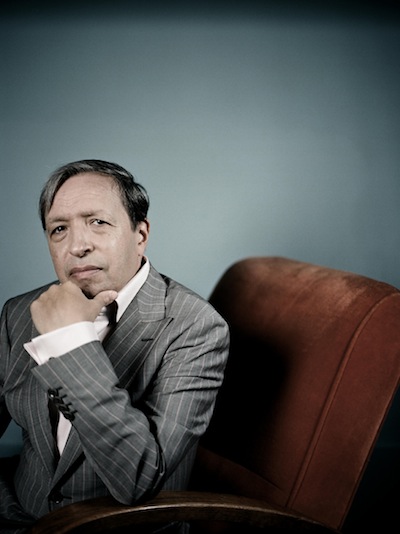Perahia shows the art that conceals art in cornerstone repertory
As pianists go, Murray Perahia is not one to often stray from his comfort zone. Throughout his four-decade career his bread and butter has been the music of Bach, Haydn, Mozart, Beethoven, Schubert, Schumann, and Chopin, with occasionally forays into later 19th century Romanticism. One might even label his recitals predictable, if you expect unerringly perceptive and idiomatic readings of the core repertoire to be a given.
Sunday at Orchestra Hall in Chicago, the pianist’s accounts of staples by four of these masters was, as expected, fluid and penetrating, beginning with an uncommonly glowing account of Bach’s French Suite No. 6. The eight baroque dance movements were precisely etched, yet still moulded with an exquisitely nuanced rubato that gave shape to nearly every utterance, whether melody or figuration. One might expect formal contours or forward momentum to be compromised, but the pianist held all of these elements in exquisite balance.
In the cautiously paced Allemande, the pianist took care to delicately shade each line, with voicing modifications and the occasional ornament affixed on repeats. His self-effacing physical presence rarely projected his musical intentions, but he clearly relished the unexpected timing of Bach’s chordal progressions in an elegant account of the Sarabande. There was a twinkle of good humor in the jocular Gavotte, and his brittle staccato lent the Gigue a rustic edge.
Haydn’s Sonata No. 31 in A flat doesn’t receive nearly the attention it deserves, a point driven home in Perahia’s probing account of this unheralded masterpiece. The pianist didn’t seem concerned about the composer’s call for a patient tempo in the Allegro moderato opening movement, but no details were sacrificed in a fleet and thoroughly compelling reading. His mastery of graceful rubato was nowhere more apparent than in the sublime Adagio. In a passage written for the left hand only, Perahia’s unused right hand carved a lovely arc in the air, as if to conduct and shape the spare melodic utterance.
A mere 40 years separate this work from Beethoven’s Sonata No. 26, Op. 81a (Les adieux), but the pianist’s incendiary reading underlined the stylistic chasm pried open in the intervening years in Vienna. Perahia’s trademark pianism has always suggested a certain caution and obeisance to formal Classical norms, but such constraints were tossed aside for this ground-breaking sonata.
With Napoleon’s forces baring down on Vienna, and on the very day that Beethoven’s devoted patron Archduke Rudolf fled to the countryside, the composer began work on one of his most explicitly programmatic works. The slow opening horn calls, representative of carriages departing from his beloved city, were laid out with ominous foreboding, a prelude to Perahia’s boldly forged main allegro themes. The composer asks the performer to approach the Andante (“Absence”) “with great feeling”, a request the pianist explored with heart-rending pathos before launching into a euphoric, blistering finale (“as fast as possible”), likely an evocation of an ecstatic homecoming.
Perahia’s account of Chopin’s Scherzo in B minor (performed here in his last recital) was a shade less satisfying than his Haydn and Beethoven sonatas, yet only due to the high bar set in the first half. His reading was ripe with dramatic contrasts, but his hair-trigger tempos led to a few minor mishaps, and the fragile tune in the middle section (marked sotto voce) seemed overdone.
No such reservations could be ascribed to his sweeping account of César Franck’s Prelude, Chorale, and Fugue. Generous use of the sustain pedal made for a greatly expanded sonic impact, and virtuosic Lisztian flourishes were easily vanquished. If the musical content of the piece is a few notches below the other programmed works, Perahia nevertheless made a persuasive case.
A supple reading of Chopin’s Nocturne Op. 15, No. 1 made for a soothing first encore, and a feverish account of Schumann’s “Traumes Wirren” (“Dream’s Confusions”) from the Fantasiestücke, Op. 12, sent his grateful admirers home with a smile.
